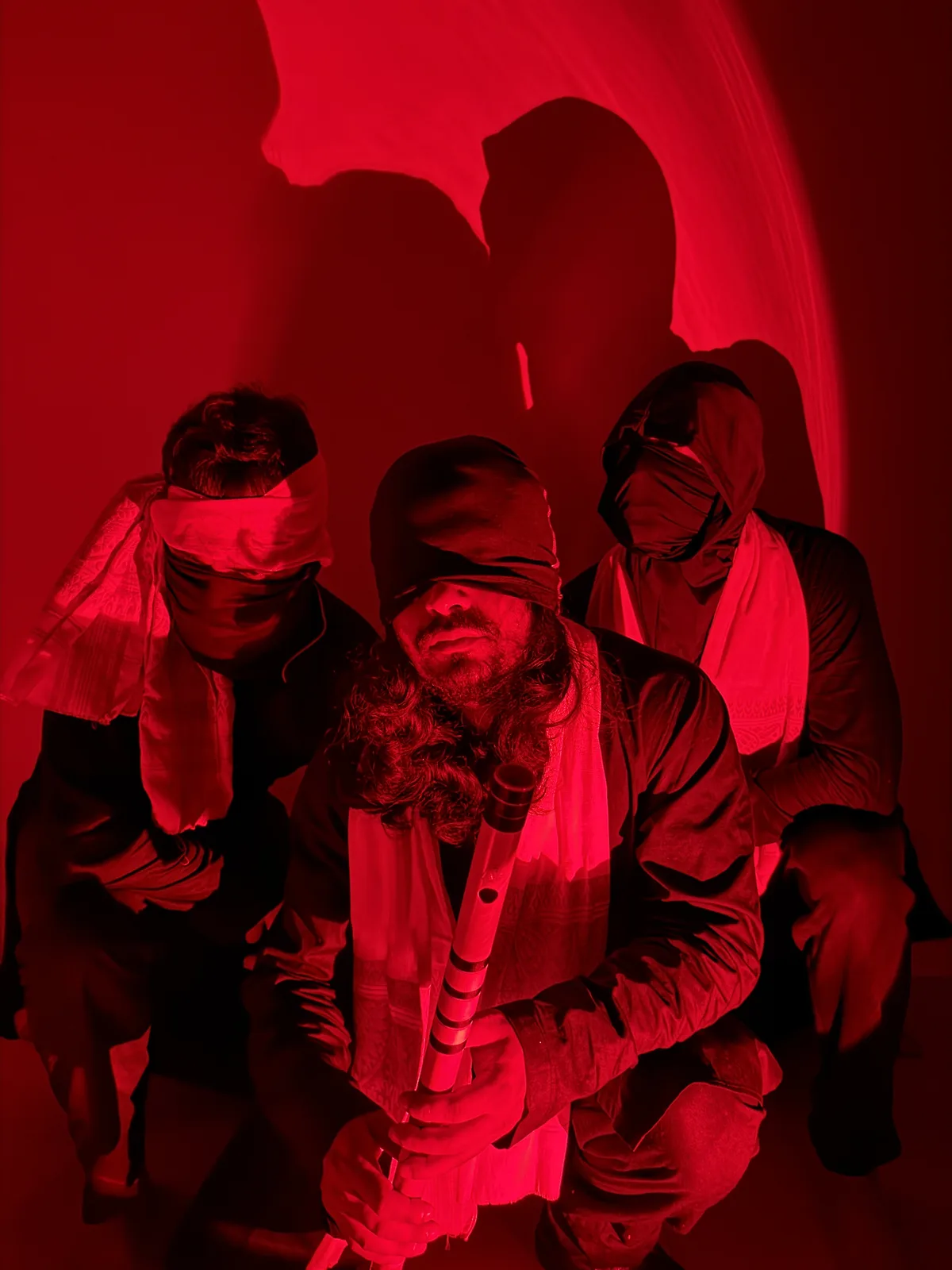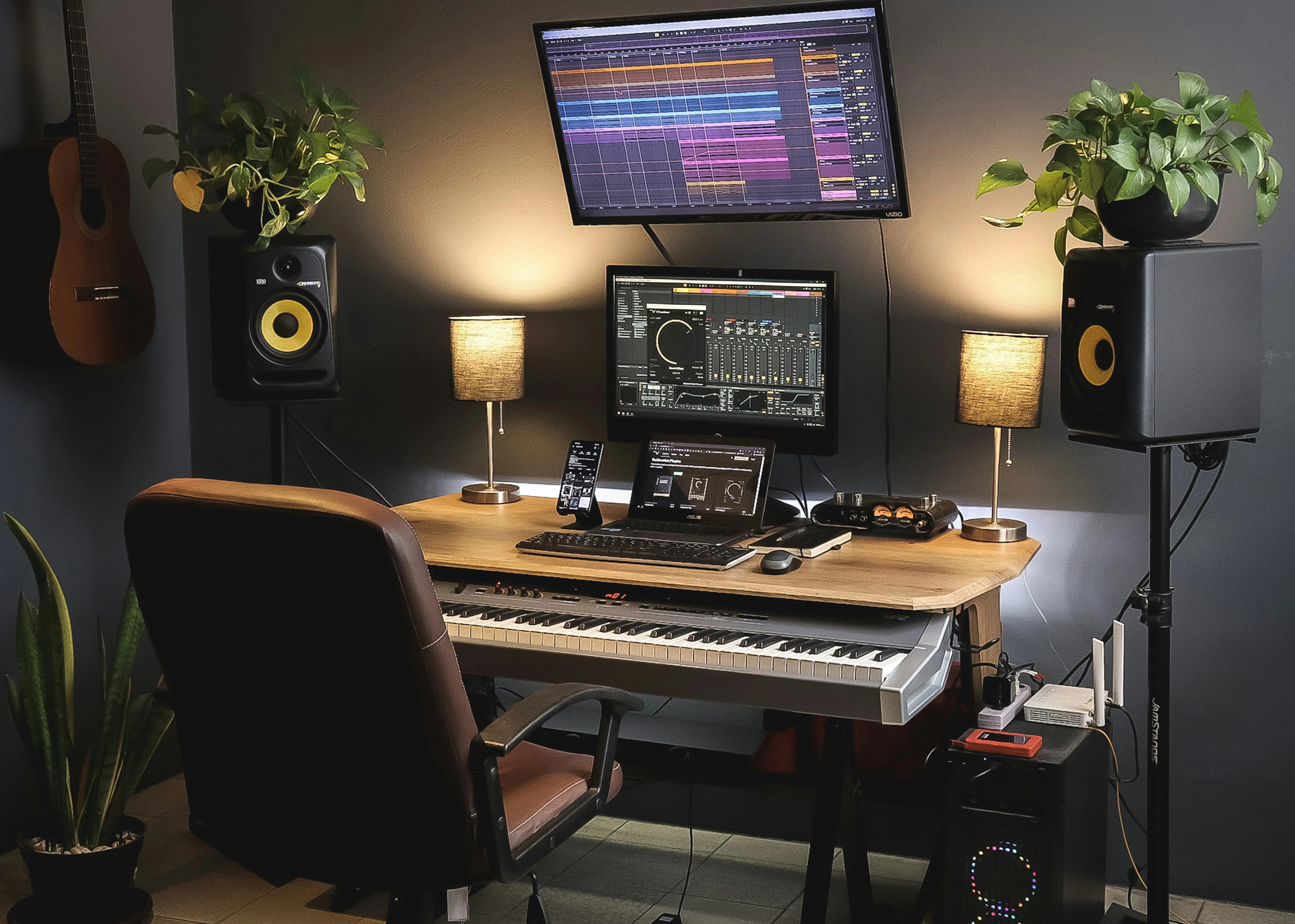Writers of instrumental music get one opportunity to play word association with their listeners, via the song title. With the opening (and title) track on their latest EP Moodswings, Chennai based nu-jazz quartet Jatayu clued us in on what to expect, but the way they went about delivering it, deserves much praise.
Shlyu Ravindran (carnatic guitar) says that he wanted to demonstrate how altering one or two notes in a scale can create a major impact on the mood of a song. He chose the ragas Kalyani and Nasikabhushani to enumerate his point. While both are relatively happy sounding scales, the harmonic modulation in the back makes the latter sound dark and brooding. Contrast is the foundation for this song, with a chunky, staccato opening riff supporting a beautiful, glissando guitar melody on top. Rhythmically, the song flows along in spite of the odd time signature. Making a 5/8 sound this groovy is testament to the proficiency and musicality of Manu Krishnan (drums), Kashyap Jayshankar (bass) and Sahib Singh (guitar), and a recurring theme throughout the EP. The contribution of Akshay Ganesh on violin only makes the differences in mood within the two scales all the more poignant.
Dual Raga, in name and emotion, is a continuation of this contrast driven approach. This time the band chooses to mix a largely happy mood with one that sounds like wistfulness or yearning, before cycling back around again. What frees up both guitars to focus on emotive and melodic playing on this track is Kashyap’s (bass) ability to switch roles effortlessly between that of a rhythmic and a harmonic contributor. Not only does the bass lay down the harmonic motif for the intro, but is also the foundation for the guitar solo with some tasteful double stops and chordal playing.

Odd time signatures have always been a part of Jatayu’s music, but for casual listeners, the band recommends treating 69 as a straight forward song in 6/8. But those musically (or mathematically) curious would appreciate that the melody cycles around every 36 or 72 bars, numbers divisible by both 6 and 9 and giving birth to the name of the song. While the band holds down the fort in 6/8, the lead guitar keeps time in a 9 or 18, and sometimes in a 12. This rhythmic modulation only becomes more intricate as the song progresses. However one chooses to count it though, 69 is an easy to relate to song that encourages listeners to nod their heads along to an RHCP-esque outro and highlights the band’s strong affinity towards funk music.
Classifying their releases under a particular genre is not one of the band’s priorities, because they’re clearly extremely comfortable with their carnatic roots as well as their funk and prog chops. Salad Days is a prime example, where they effortlessly blend their diverse influences, interspersed with some sonic experimentation to keep things interesting. The band says that if they had to classify their music, they’d slot it under nu-jazz. Philosophically, nu-jazz draws attention to the music as opposed to the individual prowess of the musicians and that’s a tenet the band clearly follows.

Jatayu has been an evolving project. Formed in 2016, the band went through several lineup changes but founders Shylu and Sahib (who also doubles as band manager) were never fully satisfied. The addition of Kashyap on bass and Manu on drums in 2017 proved to be the turning point which allowed the band to chase the sound they were looking for. Jatayu has also always been a collaborative project. On their excellent debut EP Chango Tales, the band featured Swiss baroque duo Krond-Flast and German violinist and string arranger Holger Jetter. Their goal, says Singh, is to travel the world and work with musicians in every city. It was this spirit of collaboration that led to my introduction to the band in early 2020. They were in Pune for a leg of their tour and wanted to record a live version of their song “May I” with some local musicians (including yours truly). While their talent and love for music was obvious, it was their oneness as a band juxtaposed with genuine excitement to let in new collaborators which made the experience special.
Moodswings doesn’t require one to know about carnatic scales, odd time signatures or jazz chords to appreciate it. The band’s mastery of their instruments and complexity of composition is largely hidden behind the strong melodic and emotive face of each song, which makes this album accessible to every listener, casual or otherwise.
The songs on this EP are some of the earliest pieces of music Ravindran used to teach himself carnatic guitar, well before this band was formed. While the lockdown presented them with the time, the ability to turn practice exercises into such complete and thoughtful songs is a testament to the growth and limitless potential of this band, which bodes well for the future of Indian music.




























